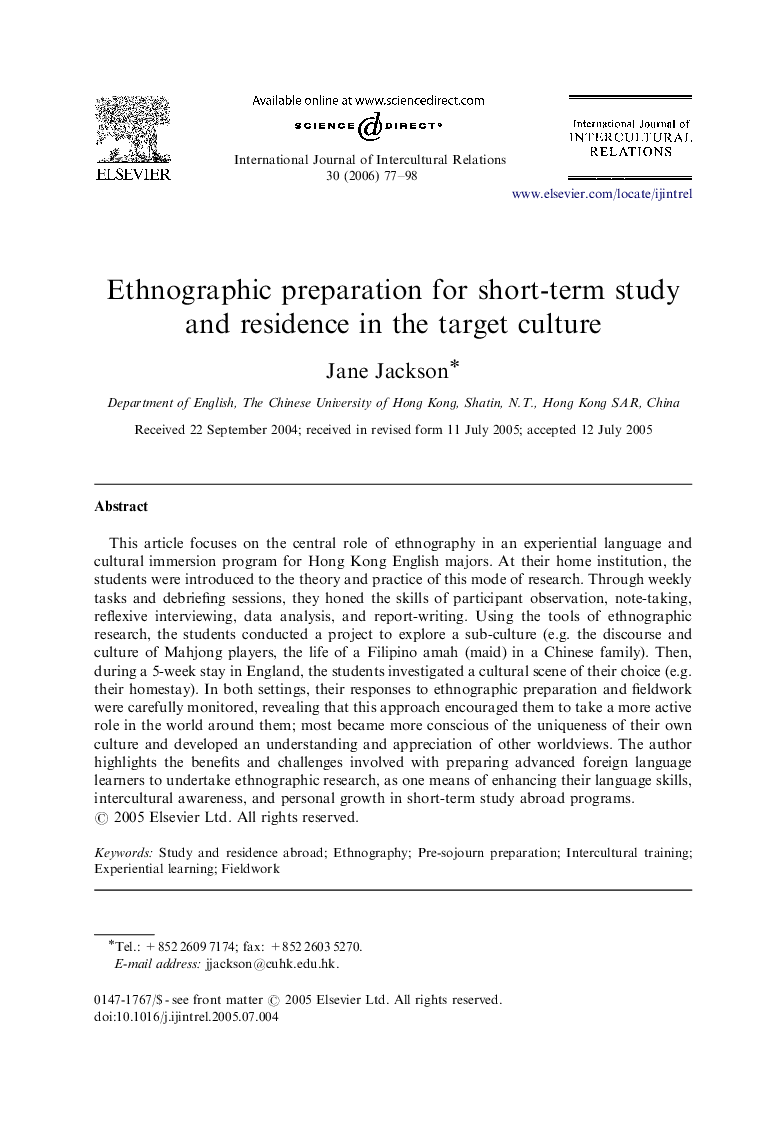| Article ID | Journal | Published Year | Pages | File Type |
|---|---|---|---|---|
| 947583 | International Journal of Intercultural Relations | 2006 | 22 Pages |
This article focuses on the central role of ethnography in an experiential language and cultural immersion program for Hong Kong English majors. At their home institution, the students were introduced to the theory and practice of this mode of research. Through weekly tasks and debriefing sessions, they honed the skills of participant observation, note-taking, reflexive interviewing, data analysis, and report-writing. Using the tools of ethnographic research, the students conducted a project to explore a sub-culture (e.g. the discourse and culture of Mahjong players, the life of a Filipino amah (maid) in a Chinese family). Then, during a 5-week stay in England, the students investigated a cultural scene of their choice (e.g. their homestay). In both settings, their responses to ethnographic preparation and fieldwork were carefully monitored, revealing that this approach encouraged them to take a more active role in the world around them; most became more conscious of the uniqueness of their own culture and developed an understanding and appreciation of other worldviews. The author highlights the benefits and challenges involved with preparing advanced foreign language learners to undertake ethnographic research, as one means of enhancing their language skills, intercultural awareness, and personal growth in short-term study abroad programs.
